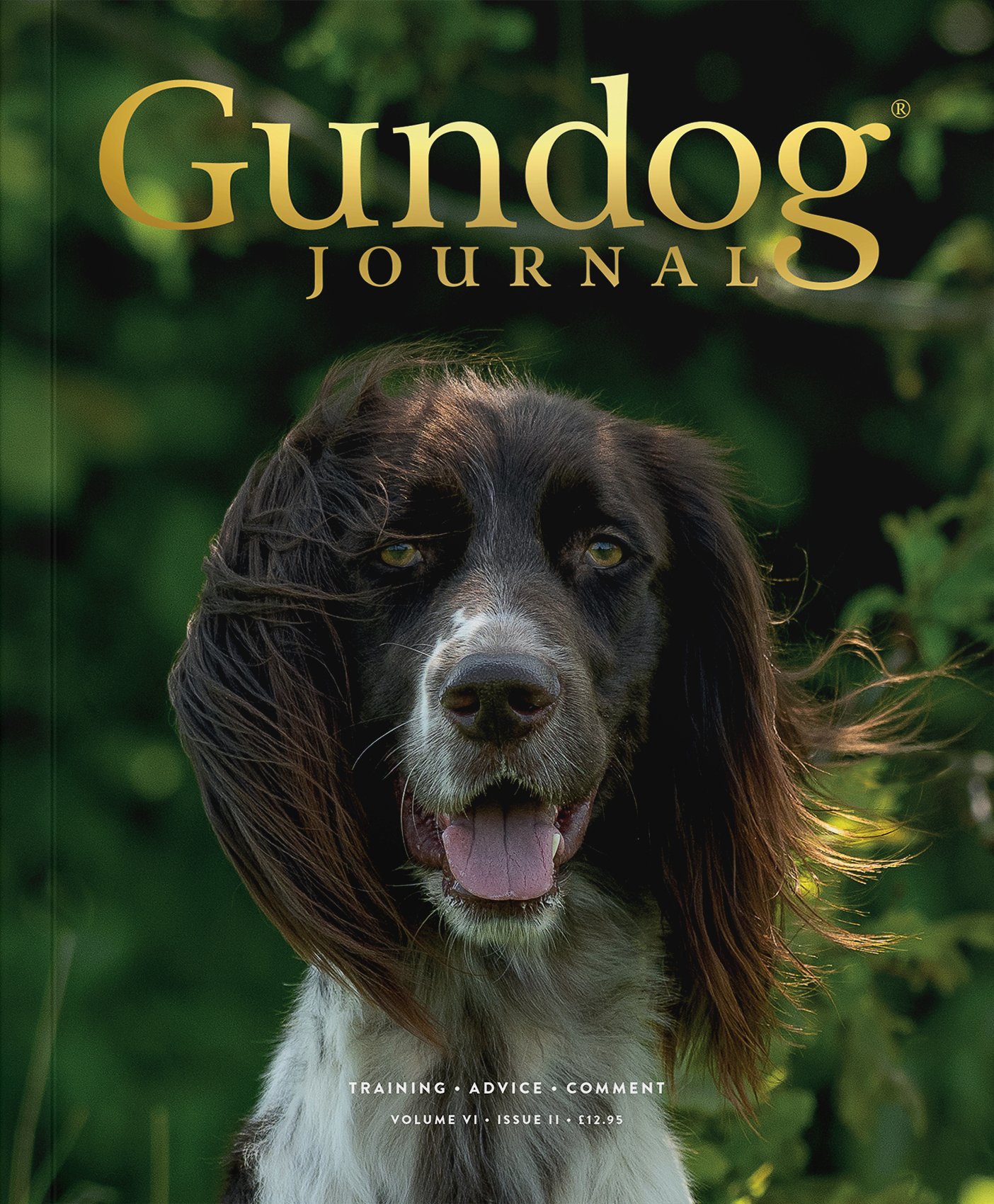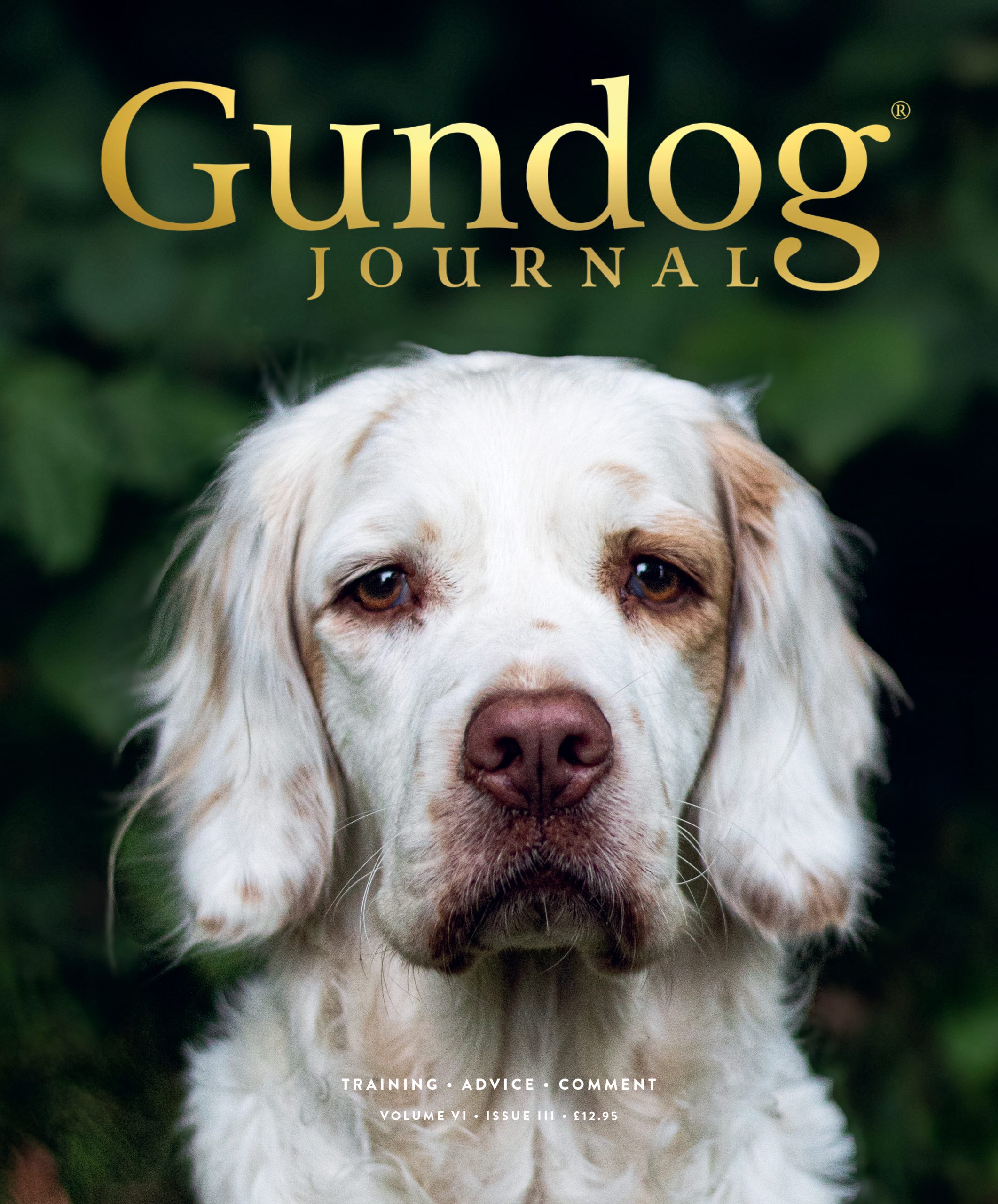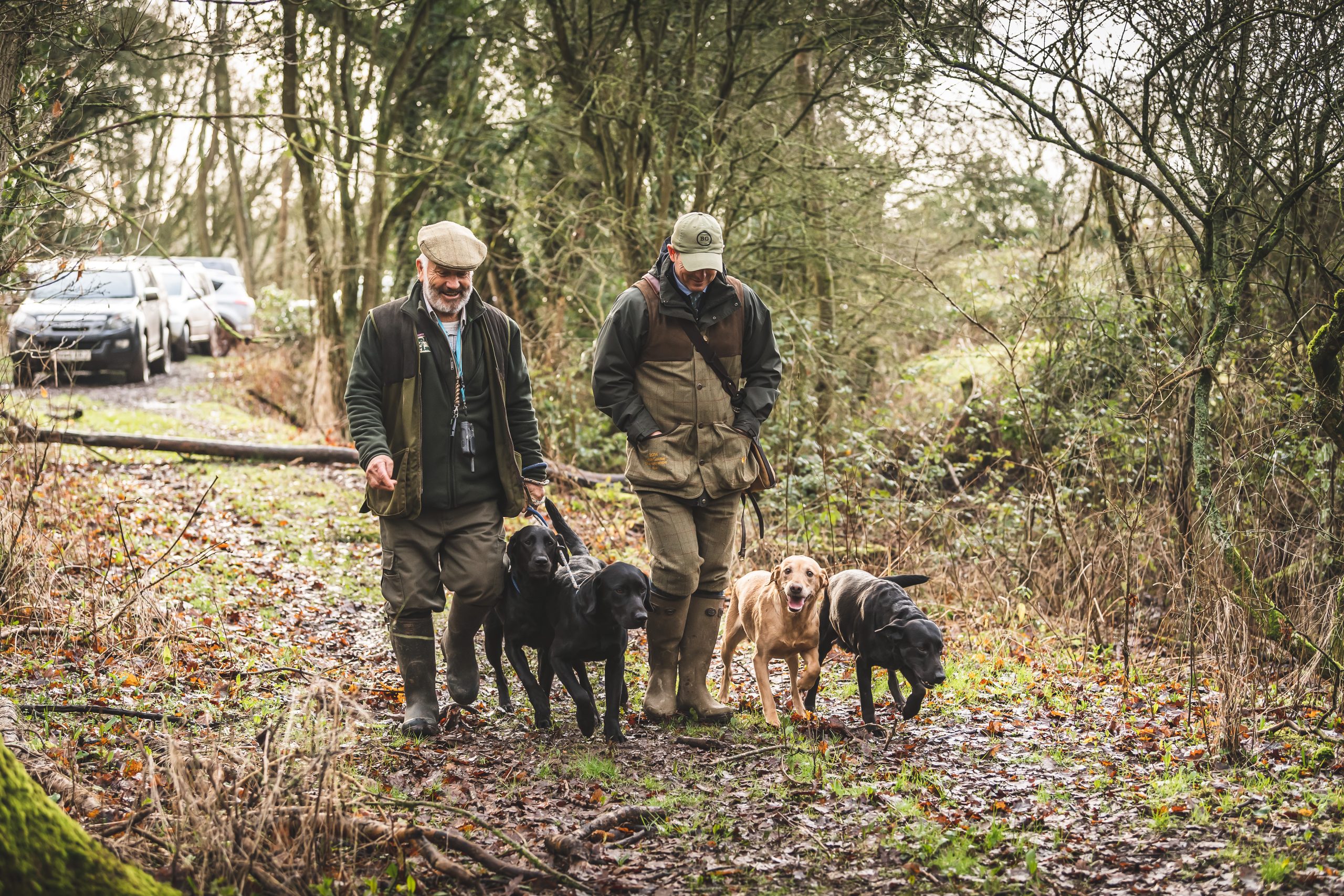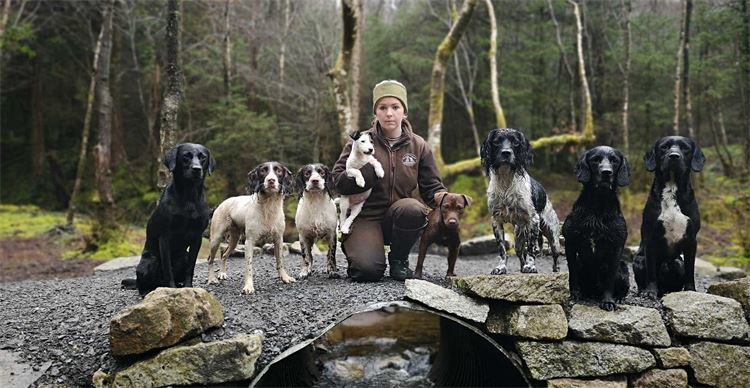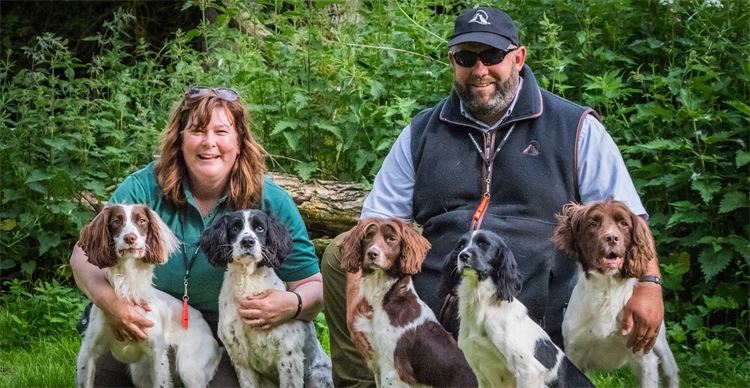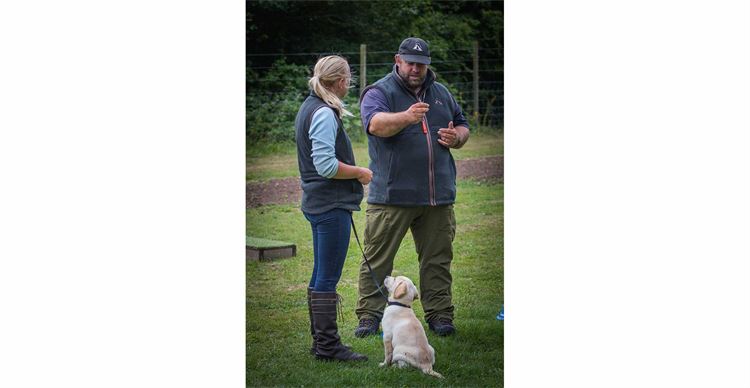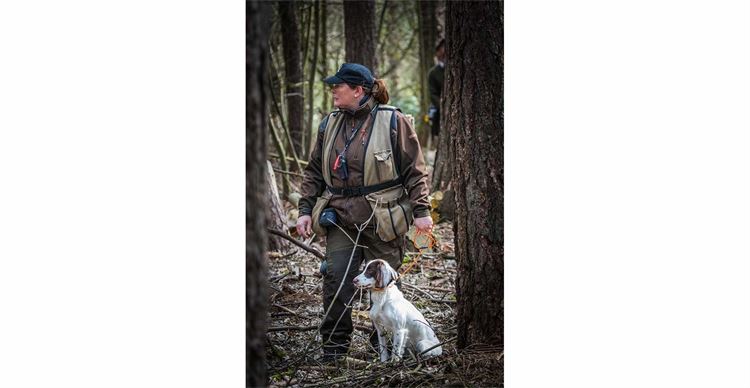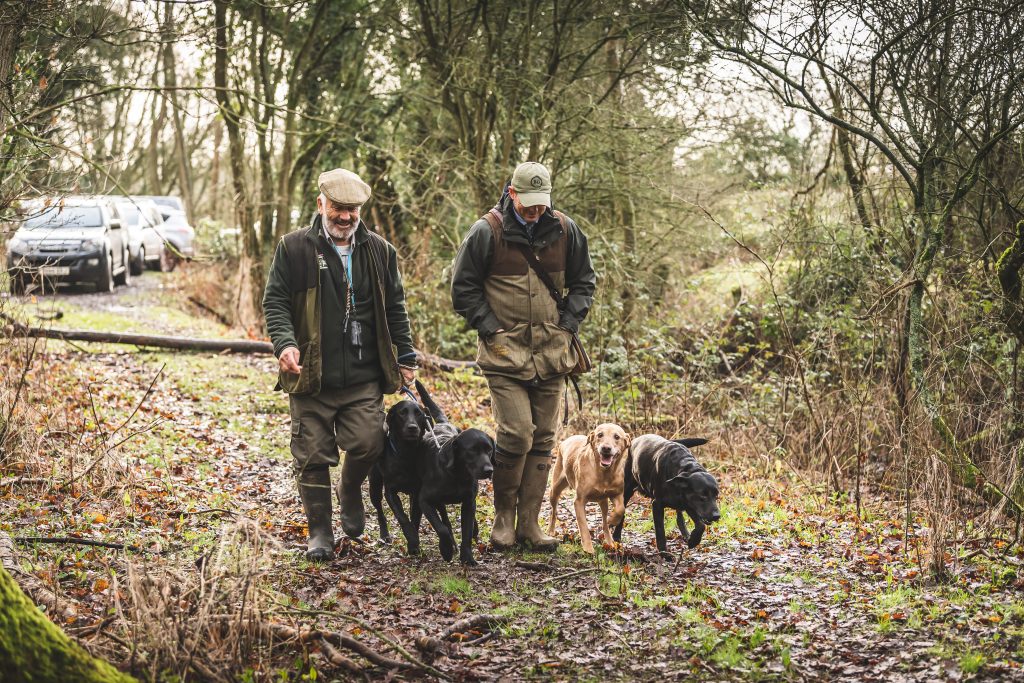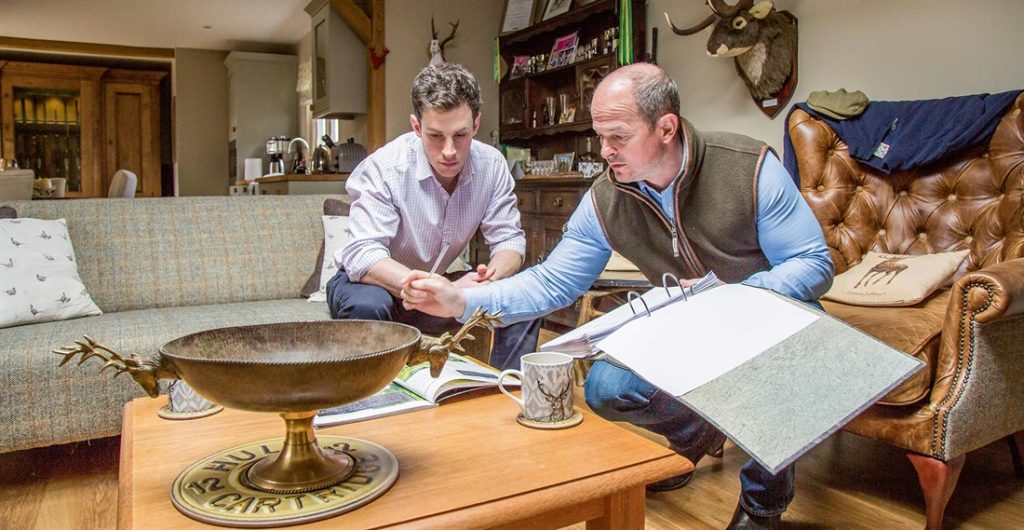A guide to online gundog training
Virtual gundog training is never going to replace the real deal, but for the hundreds of novices out there having an online support network, even if just for the short term, is vital. Victoria Rose explores what’s on offer in these challenging times.
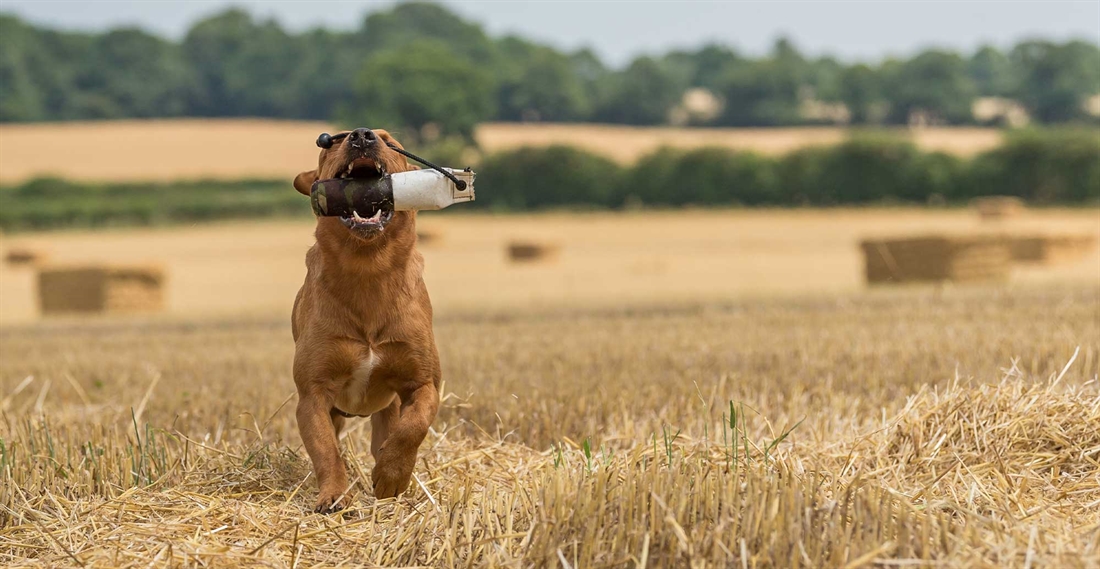
With Corona Virus sending shockwaves through the world, causing thousands of deaths, economic disaster and unprecedented social upheaval, those of us who are passionate about training gundogs are left with an extra headache; how to maintain standards in these tough times?
Fortunately for me and the hundreds of other novice handlers out there, the resilience of professional gundog trainers across the country has been remarkable. Determined not to let clients down, many have dived head-first into uncharted waters; researching, learning; and embracing new technologies, not just to keep their own livelihood’s afloat but to ensure that no one feels like they are drowning in this unprecedented scenario.
The concept of sharing training videos with handlers is not new. James Reavil and Hannah Spearman, of Cwnsaethu and Rebelritsi, have long hosted a popular Facebook video group and provide extensive, entertaining and interactive Facebook Live sessions for their subscribing clients. At Mullenscote Gundogs Howard Kirby offers similar services with his ‘Mullenscote TV’ channel, not only offering weekly training tutorials but news and interviews too.
Working across central Scotland and surrounding islands, Bethany Nicholls, of Behaviour Shaping and Training, is au fait with using Skype, Zoom and FaceTime for virtual lessons, to support clients in-between face-to-face sessions.
For the last six months, Claire Deyner at Family Dog Services has been preparing an online training programme. Launched early due to Covid-19, the first virtual gundog training course has been designed to instil the basics, with a novice class to follow soon.
Over the last year, fellow Gundog Journal columnist and founder of the Ladies Working Dog Group, Jo Perrot, has produced a series of masterclasses with different trainers covering a diverse range of topics. For the community to keep in touch too, VIP members can also participate in the fortnightly Study Hall hosted on Zoom.
While all these trainers and more have ramped up an already established online offering for clients old and new, a spotlight must be shone on those who have agilely adapted their businesses at the drop of a dummy; proving that going online doesn’t need to be overly complicated, nor expensive for either party.
Picking up on the finer details
Having only taken her gundog training career full-time in October 2019, when the isolation measures were put in place Emily Wickham of Scurries Dog Training needed to find a way to get online on a budget. “I know many other trainers who have invested extensively in cameras, scripts, lighting and filming, but I didn’t want to get too technical,” said Emily. “It is perfectly possible for me to convey the right information in a quick, easy and user-friendly way with my GoPro.”
With classes on hold, Emily and her working cocker spaniel Louie set about recording a full range of modern and force-free exercises normally taught in class. Each of Emily’s gundog classes has access to a Facebook group, with videos also being uploaded to YouTube.
Using Zoom to communicate with clients, sessions are structured like a normal class, talking through why and how Emily is teaching a certain behaviour, before providing a demonstration and asking clients to have a go. The only difference is that a video is used to demonstrate and clients are invited to send recordings of their own efforts for feedback.
“It is easier for clients to see where they might be going wrong and, as a trainer, I can pick up on the smallest handling details which often wouldn’t be possible in class when I am looking after up to six people at once,” Emily admits.
While most training today is reward-based, with some high profile and well-respected professionals demonstrating that they too use food in training, there are a limited number of positive-only gundog trainers out there. Emily feels that getting this approach in front of more people is important and by uploading to YouTube, Emily’s clients will also benefit from having long-term access to the training videos.
Huge learning curve
Recognising that a lockdown situation was going to be intensely stressful for new puppy owners, Emma Stevens of Cunningshot Dog Training launched a foundation puppy class for those with dogs from eight weeks to six months old. As well as giving much needed advice on how to socialise effectively during social distancing, Emma is also helping new owners to teach the basics in the home and garden.
For her more advanced clients, Emma is issuing training timetables every Monday which includes four exercises per day focusing on different elements depending on whether the dog is at a foundation, novice or advance stage.
“Moving online has been a huge learning curve and more work for both me and my clients, but it has been very rewarding to see people making the effort and it ensures that I can keep supporting and helping them,” said Emma. “As I am now filming my dogs, I am learning more about myself as a handler, and watching clients’ videos has helped me to pick up on some of their minor inconsistencies, unnecessary commands and body language.”
Handlers are also given access to Facebook Messenger groups – which are spilt into ability so that beginners don’t unnecessarily panic about advanced level exercises – and weekly Zoom meetings which are recorded for anyone who can’t attend. By removing dogs from the ‘class environment’ Emma has received many positive comments from people who feel like they are getting more out of lessons, with a chance to ask more questions.
“Seeing daily progress is a great benefit because if something is going wrong, I can give advice almost instantly, where normally they might have been doing something incorrectly all week,” said Emma. “Clients have already said that it has made them stay social and has motivated to do something with their dogs. It has been great to see people offering each other advice too because it really shows that they are building a community, as well as listening to what I have told them.”
Emma has also been doing some live training sessions for the Next Generation Shooting group as well as setting various training challenges for puppy, novice and advanced abilities.
Year-round benefits
A packed schedule of clients has often seen business development drop to the bottom of the to-do list for many trainers, but with a potential relocation to Wales looming, the onset of the coronavirus gave Lead and Listen owner Collette May the push she was looking for.
“As much as it has all been a bit of a nightmare – having to learn and make tweaks to the technology – this crisis has forced me to adapt and make improvements to my own business,” said Collette. “I have wanted to take training more online for a long time because I genuinely believe that a lot of handlers could benefit from support outside of a class or one-to-one environment.”
After watching several tutorials, Collette is now offering her normal Gundog Club graded training scheme courses via Zoom and private Facebook groups. The beginners’ grade one can be taught entirely indoors, with participants given time to try exercises there and then. For the more advanced grades two and three, Collette is setting three drills per week using the ‘units section’ of Facebook. Exercises need to be videoed and submitted in advance by the handlers, who can review and discuss performance with Collette, and the rest of the group, at the weekly meeting.
“Taking these classes online means it doesn’t matter where in the world me or my clients are based,” said Collette, who has already had people from the Netherlands, Hong Kong and Scotland sign up for her courses. “Clients know I am still here to support them. For those who have been financially hit by the coronavirus situation, I am still sharing videos and tips on the open Facebook group, and for those who are missing out on the social aspect regular meetings have proved really popular.”
As well as keeping connected during Covid-19, Collette has also identified that remote training courses can provide year-round benefits. Those with reactive dogs, bitches in season, recovering from injury, or dogs who struggle to work in a class environment don’t have to miss out on a group environment. Sessions don’t need to be cancelled due to poor weather either, and handlers who are unable to attend in person, due to illness or other commitments can also catch up online.
Leading by example
(Photograph: 3 Black Dogs Photography)
It’s not just the professionals who are having to adapt to this new online set up. People of all ages and backgrounds take up gundog training, and while some find themselves with more time to train, others have vulnerable relatives to care for, children to home-school, or key-worker jobs which are more demanding than ever.
“We needed to find a way to effectively deliver training online, so that people neither felt bombarded with information, nor abandoned,” said Rob Palmer, who runs Seadogs with his wife Julie. “As well as offering remote sessions for individuals, we also put together a range of progressive courses so that all our clients, regardless of whether they have puppies or already take dogs with them shooting, can keep up training momentum. Like anything, it is still up to the individual to get motivated enough to work through the exercises and to send us videos for feedback, but at least they can complete the courses they started.”
(Photograph: 3 Black Dogs Photography)
When creating the range of tutorials too, Rob and Julie have been mindful not to edit and produce a perfect clip. Any mistakes have simply been used as an opportunity to remind clients how to work through issues and the couple will also provide further videos to break down behaviours people are struggling with. After all, dogs are not robots.
“It needs to be interactive and if people don’t show us what is going wrong, we can’t help them to improve,” said Julie. “It is about leading by example and making people feel comfortable too, which is why we have very small private Facebook groups. More advanced students do miss out on aspects like going out with Rob and his shotgun, practicing with cold game or training in our three-acre rabbit pen, but if our online option keeps people on the right path, time won’t be lost trying to undo bad habits when everything goes back to normal.”
(Photograph: 3 Black Dogs Photography)
How to use a smartphone to train your gundog
Buy a tripod – as the number of vloggers increases, so does the availability of cheap and convenient tripods. Ones with flexible legs tend to be small enough to fit in your game bag or dummy vest and can even be wrapped round trees, fences and marker posts to help you get the perfect shot if you’re training alone.
Keep the bloopers – if something doesn’t go to plan while filming, fight the temptation to delete the footage. As well as tracking performance, or giving you something to laugh at later, watching back will help you to see where it all went wrong. Dog training is often derailed by sloppy body language; seeing is believing.
Start using a notes app – write a training plan and stick to it. Breaking goals down into daily sessions can not only help to keep you motivated, it’s another great way of looking back on how far you’ve come. Use your phone out in the field to remind yourself of what you’re trying to achieve and make a brief note of how it went. Once you’re back home, you can think about whether you can increase difficulty or if you need to go back to basics.
Related Articles
Get the latest news delivered direct to your door
Subscribe to Gundog Journal
Unlock the full potential of your working dog with a subscription to Gundog Journal, the UK’s only dedicated magazine for gundog enthusiasts. Published bi-monthly, this authoritative resource delivers expert training advice, in-depth interviews with top trainers and veterinary guidance to help you nurture a stronger bond with your dog.
With stunning photography and thought-provoking content, Gundog Journal is your essential guide to understanding, training and celebrating your working dog.
Save 10% on shop price when you subscribe, with a choice of packages that work for you. Choose from Print & Digital or Digital only with each journal delivered directly to your door or via the app every other month, plus access to past issues with the digital back issue library.
